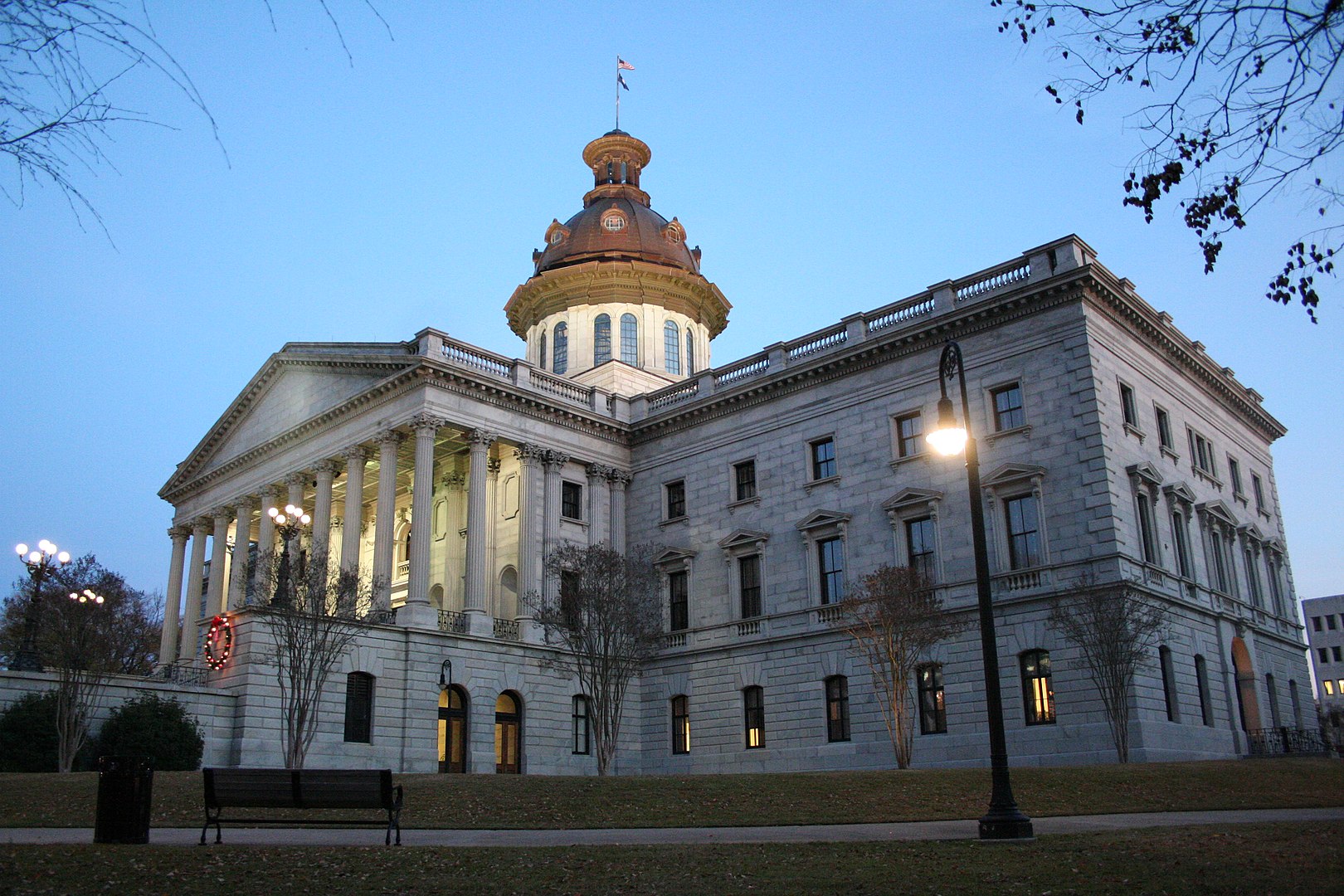CHARLESTON, S.C. (CN) — The South Carolina House of Representatives passed a bill that would ban most abortions after about six weeks of a pregnancy, defying a decision issued by the state Supreme Court only a few months ago that found a similar law unconstitutional.
Democratic lawmakers filed more than 900 amendments in an attempt to filibuster the legislation, turning the first day of the legislature's special session into a war of wills that continued until a computer failure halted proceedings in the early morning on Wednesday.
Lawmakers reconvened later in the morning and the debate continued until the 82-33 vote after 9 p.m.
“It's a win today," Republican Representative Melissa Oremus said. "It's a win today for all the babies who haven’t yet been born.”
The state Senate approved its own version of the “fetal heartbeat” bill in February, but the House bill will go back for a final vote on changes before heading to the governor's desk.
The ban would restrict abortions when embryonic cardiac activity is first detected, or after about six weeks of pregnancy, with exceptions for rape and incest, fatal fetal abnormalities and to protect the mother’s life.
Hundreds of amendments failed on party-line votes while other were tossed out for being frivolous. Democrats filed amendments seeking annual state inspections of ultrasound machines, broader exceptions for fetal abnormalities and increased funding for prenatal care.
Representative Russell Ott, one of two House Democrats who voted in favor of an abortion ban last year, said he could not support the law in light of the high court’s recent decision.
In January, the South Carolina Supreme Court issued a 3-2 decision that found a six-week abortion ban violated the state Constitution. The ban was originally signed into law in 2021 but only went into effect after the U.S. Supreme Court’s decision in Roe v. Wade.
Justice Kaye Hearn wrote in the majority opinion that the six-week ban violated a woman’s constitutional right to privacy. While the state has an interest in fetal life and the maternal health of women, Kearn wrote, the ban did not serve that interest.
“Once a woman knows she is pregnant, in order to have a choice, options must be available,” Hearn wrote. “It is impossible to conclude that the average woman who determines she is pregnant at just over five weeks has sufficient time to weigh her options, schedule an appointment at one of the three clinics in the state, and comply with the mandatory waiting periods before having an abortion. This confirms that in reality, there is no ‘choice’ at all.”
Ott questioned why Republicans would force a new bill through the legislature hoping for a different result than was achieved in January. He said it made more sense to send a constitutional amendment to voters.
Representative Deon Tedder, another Democrat, pointed to the contentious legislative election to replace Hearn, who retired after writing the majority opinion in Planned Parenthood v. South Carolina.
Two female candidates withdrew from the race before the General Assembly voted to elect Judge Gary Hill, who conservatives believe will rule in their favor on highly politicized issues, including abortion and the death penalty. As a result of Hill’s election, South Carolina became the only state in the country without a woman serving on its highest court.
“This was planned a long time ago,” Tedder said.
Tuesday was the first day of the special session called by Republican Governor Henry McMaster after the regular session ended last week without a spending plan.
House lawmakers heard the bill’s first amendment around 1 p.m. Tuesday. They reached the 70th amendment as the sun set on the South Carolina Statehouse and the 130th amendment around 1:30 a.m. Wednesday, when a computer failure caused them to recess.
Almost all the amendments were tabled or failed, but Democrat lawmakers used their allotted three-minute arguments to plead their case and needle their opponents.
Fifteen of South Carolina’s 46 counties do not have an OB-GYN doctor, Representative Roger Kirby said, and infant mortality rates are up 40% since 2017. Kirby said his own daughter did not realize she was pregnant for 4 and a half weeks and it took her 14 weeks to get an appointment with her gynecologist, he said.
“We absolutely cannot afford to put additional burdens on our rural hospitals and rural healthcare systems," he said.
Republicans mostly remained silent while voting down the amendments, but Representative Josiah Magnuson rebutted accusations they wasted tax dollars by approving a new six-week ban.
Protecting human lives was “priceless,” said Magnuson, a member of the legislature’s ultraconservative Freedom Caucus. He said his opponent’s complaints were “ironic” considering how much time was wasted arguing for frivolous amendments.
On Tuesday, the North Carolina legislature overrode the Democratic governor’s veto on a bill that would ban most abortions after 12 weeks. As a result, Virginia is the lone state in the South where women can lawfully obtain an abortion after the first trimester.
Subscribe to Closing Arguments
Sign up for new weekly newsletter Closing Arguments to get the latest about ongoing trials, major litigation and hot cases and rulings in courthouses around the U.S. and the world.









